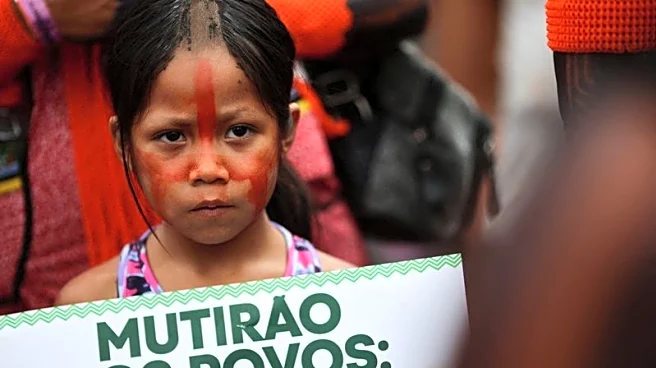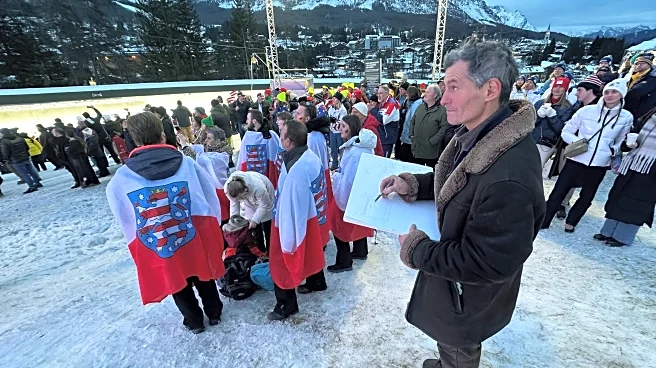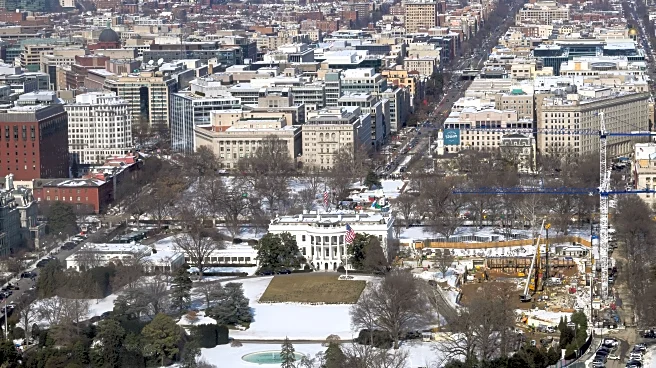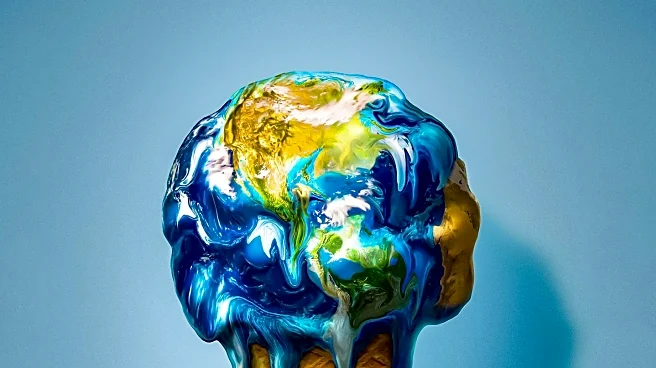BELEM, Brazil (Reuters) -Thousands of climate protesters marched through the Brazilian city of Belem on Saturday in a noisy, diverse and peaceful display to demand more action to protect the fate of the planet and vent their anger at governments and fossil fuel industries.
A short distance away, negotiators reached the halfway point in the marathon COP30 climate summit which seeks to turn years of promises into action to halt rising global temperatures and deliver support to those most affected by
a warmer planet.
Out on the streets Indigenous people, young activists and civil society groups came together in sweltering temperatures, singing, playing musical instruments and waving banners.
"This is a place for us to march and draw up a roadmap for what needs to be done at this COP: a transition away from deforestation and the use of fossil fuels," Brazil's environment minister Marina Silva said, addressing the crowds.
Indigenous protester, Cristiane Puyanawa, joined the march to call for greater land rights.
"Our land and our forest are not commodities. Respect nature and the peoples who live in the forest," she said.
COP30 has already seen myriad protests, most notably an attempt to force entry to the venue by Indigenous people that resulted in clashes with security on Tuesday, and a separate peaceful sit-in that blocked the venue on Friday morning.
On Saturday, designated as a day of protest in the two-week COP summit, there was a huge security presence around the venue, including military police in riot gear, even though the march route did not directly pass it.
COP30 TALKS TO MOVE INTO POLITICAL PHASE
Inside the talks, negotiators who have spent the week trying to thrash out progress were reporting back on what they had achieved, before they hand over their work to ministers who will seek to overcome any remaining political obstacles.
"As negotiators approach week two, they need to remember that climate action isn’t about abstract numbers or distant targets. It’s about people," said Katharine Hayhoe, chief scientist at environmental non-profit The Nature Conservancy.
"Every choice we make today determines the future we will share tomorrow."
The sprawling summit agenda covers a huge range of issues with the intention of building on progress made in previous years - an often inch-by-inch process that has over three decades delivered some, but not enough, progress to reduce global warming.
But the shape of what will emerge from the summit remains unclear, with some of the most controversial issues being discussed outside the formal process - such as increasing climate finance, moving away from fossil fuels, and how to address a collective shortfall in emissions-cutting plans.
The Brazilian COP30 presidency, which is steering those sideline discussions, must decide if it wants to attempt a high-stakes balancing act and come up with a political agreement on those issues that can be endorsed by all - known in COP parlance as a 'cover decision.'
Asked about such a deal - as he has been most days since the summit began on November 10 - COP30 President Andre Correa do Lago told a press conference:
"For a long time, I've been saying that we are not planning a cover decision, but I also said that if there is a movement from the countries to propose a cover decision, the presidency will obviously take it into consideration. So, let's see how things evolve."
(Reporting by Sebastian Rocandio, Lisandra Paraguassu and William James; Editing by Richard Valdmanis and Andrea Ricci)
















